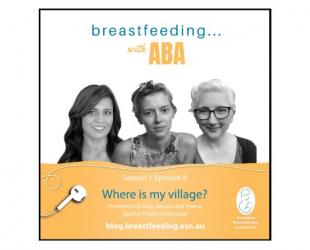How breastfeeding relates to postnatal depression varies between mothers.

It can be either positive or negative. For some mums, breastfeeding can help reduce the chance of postnatal depression or shorten how long it lasts. For others it may cause a lot of stress and anxiety. It can sometimes be helpful for those mums to stop breastfeeding.
It is very important for both the mum and her partner to learn to recognise the symptoms of antenatal and postnatal depression so that you can ask for help as early as possible. The sooner the depression is identified and the right sort of support given, the earlier you can start to recover.
Antenatal and postnatal depression are both very treatable.
Symptoms of postnatal depression
You may feel an overwhelming loss of joy in things that previously brought you pleasure. You may have difficulty in finding pleasure in your baby. Other symptoms include:
-
Sleep disturbance unrelated to baby's sleep needs
-
Appetite disturbance
-
Crying
-
Feeling unable to cope
-
Irritability
-
Anxiety
-
Pain
-
Fear of being alone or being with people
-
Memory difficulties and loss of concentration
-
Feeling guilty and inadequate
-
Loss of confidence and self-esteem
-
Morbid or obsessive thoughts and thoughts of self-harm or suicide.
Treatments and interventions
If you don’t feel the way you expected to feel during your pregnancy or after having your baby, it’s very important to talk to someone you trust such as a medical adviser, child health nurse, family, friends or a PANDA (Perinatal Anxiety and Depression Australia) counsellor.
You can keep breastfeeding while taking most anti-depressant medications. Before your doctor prescribes a medication for you, make sure they know that you are breastfeeding. If your doctor is unsure if you can breastfeed safely while taking a particular medication, ask that they check with drug information experts.
Danger signs to look for
If someone you care about starts to show these signs, try to get help for them through your local doctor. Danger signs to look out for include:
-
Talk of harming herself or the baby
-
Bizarre thoughts or speech patterns
-
Risk-taking behaviour
-
Behaviour that seems odd or is out of character
-
Severe change in mood
-
Withdrawal from all social contact
-
Extreme despair
-
Obsession with morbid ideas
-
Statements like: 'They'd be better off without me'.
For further information
-
For help with antenatal or postnatal depression, contact PANDA (Perinatal Anxiety and Depression Australia).
-
For help with breastfeeding contact the Australian Breastfeeding Association National Breastfeeding Helpline 1800 686 268
In conclusion
Postnatal and antenatal depression can mean different things to each mother but she will usually struggle to find joy in her baby or her life. It is normal for all new mothers to feel anxious tired or down at different times.
However, postnatal depression is something that lasts longer and can be harder to explain. It may make you feel that you are not in control or not coping with your baby and that you are not a good mother.
Out of the sadness that is postnatal depression, early detection, support, counselling and sometimes appropriate medication help most mothers to recover and enjoy their baby and motherhood.
The information on this website does not replace the advice of your health care provider.
© Australian Breastfeeding Association April 2022


